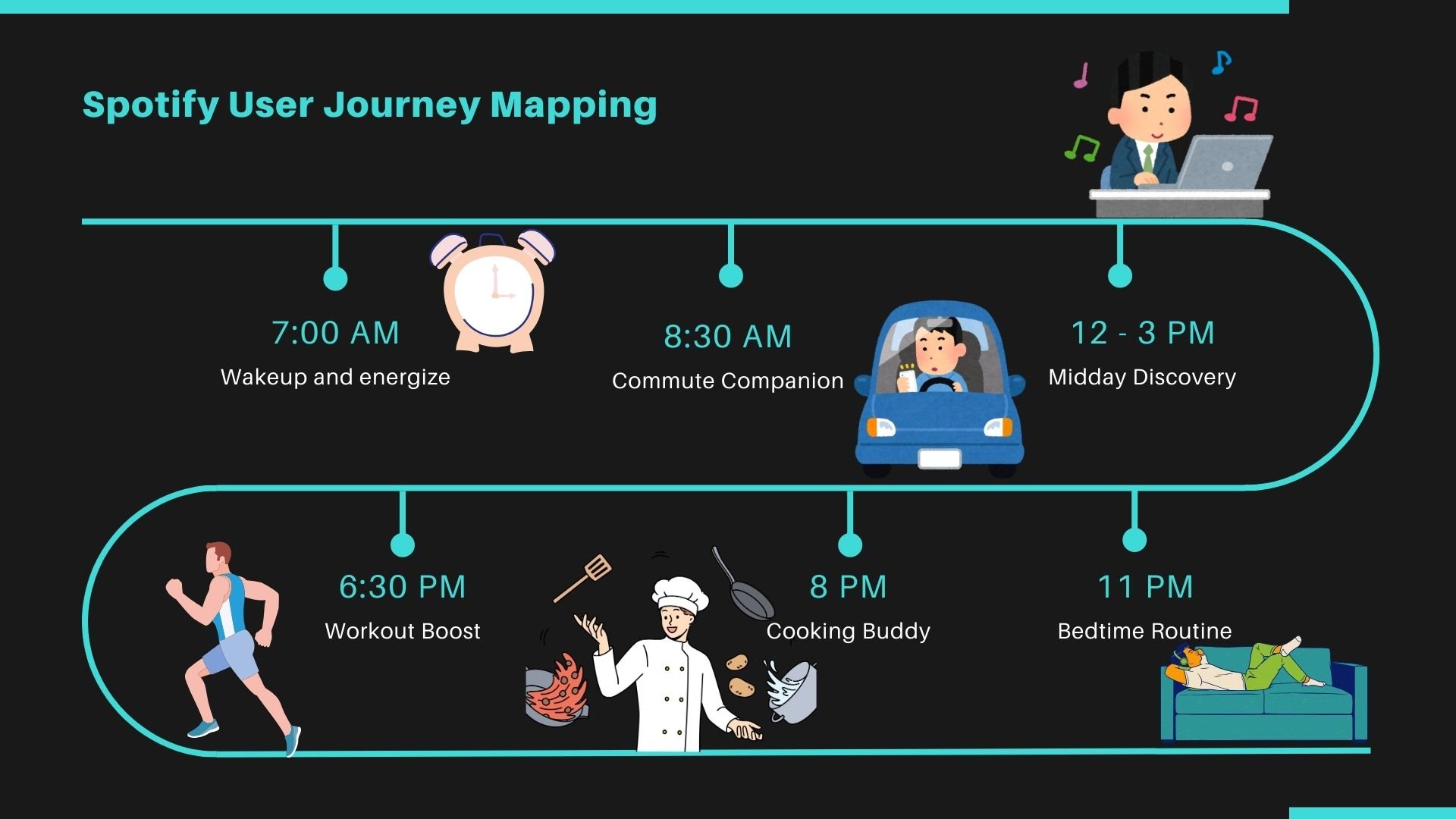Spotify Unwrapped: A Day in the Life of the World's Audio Companion
Today, we're diving into the Spotify app — a digital platform that has revolutionized how millions experience music and audio content daily. With over 615 million active users worldwide and more than 246 million premium subscribers as of June 2024, Spotify has become the world's leading music streaming service. It's not just about music anymore; Spotify has successfully expanded into podcasts, audiobooks, and even video content, making it a prime example of how a digital product can evolve to meet changing user needs and preferences.
It's important to note that music listening is not time-bound, and there's no fixed schedule for enjoying audio content. People's listening habits can vary widely based on personal preferences, lifestyle, and mood. However, for this analysis, I've attempted to map out a general user persona and their potential interactions with Spotify throughout a typical day. This approach allows us to explore various features and touch-points of the app while acknowledging that actual usage patterns can be much more diverse and fluid.
From morning commutes to workout sessions, from focused work time to relaxing evenings, Spotify has integrated itself into various aspects of users' daily routines. Its seamless cross-device functionality and offline mode have made it an indispensable companion for music lovers and podcast enthusiasts alike.
Let's break down how this app integrates into a user's daily life, and the product management insights we can glean from it.
7:00 AM - Wake Up and Energize
User starts their personalized "Morning Energy" playlist via Spotify's alarm feature
Spotify gradually increases volume and transitions to upbeat tracks
PM Insight: Integrating with users' daily routines (like waking up) increases habitual usage. The gradual wake-up feature addresses a common pain point, potentially improving user satisfaction and morning engagement rates.
8:30 AM - Commute Companion
User starts their day with Spotify's "Your Daily Drive" playlist, mixing news podcasts and music
Uses speed adjustment feature to listen to news updates at 1.5x speed
PM Insight: Blending content types (music and news) in one playlist increases time spent in-app. Predictive downloading shows proactive problem-solving, likely reducing churn due to connectivity issues.
12:00 PM - 3:00 PM - Lunchtime Exploration
User explores Spotify's podcast recommendations based on listening history
Saves a few episodes to their "Your Episodes" list for later listening
PM Insight: Personalized discovery features are crucial for long-term engagement. Social sharing capabilities extend the app's reach and can drive organic user acquisition.
6:30 PM - Workout Boost
User starts a running playlist that matches the music tempo to their pace
Spotify connects with the user's fitness app to log the workout
PM Insight: Integration with fitness apps expands Spotify's value proposition beyond music streaming. Tempo-matching showcases innovative features that can differentiate Spotify in a competitive market.
11:00 PM - Bedtime Routine
User activates sleep timer with a "Deep Sleep" ambient sound playlist
Spotify gradually lowers the volume and fades out
PM Insight: Addressing use cases beyond active listening (like sleep aids) can increase daily usage time. Features like sleep timer show attention to user wellness, potentially improving brand perception and loyalty.
Key Takeaways for Product Managers:
Contextual personalization significantly enhances user engagement throughout the day.
Integrating various content types (music, podcasts, news) within one platform increases user retention.
Social and collaborative features transform individual listening into shared experiences.

